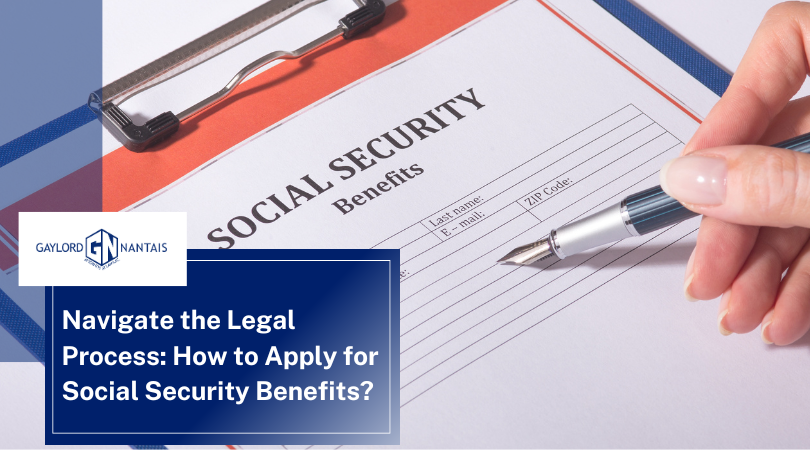What Can a Landlord Do About Unpaid Rent in Texas – Technologist
What can a landlord do about unpaid rent in Texas? When tenants fail to pay rent in Texas, landlords face a challenging situation. However, there are legal options available to landlords in Texas when rent payments come late or not at all.
Learn how to address unpaid rent effectively and legally as we focus on the eviction process, notice requirements, and other legal remedies. This guide provides clear, practical advice for landlords dealing with this common issue.
Understanding Texas Landlord-Tenant Law
The relationship between landlords and tenants in Texas operates under specific laws. These laws define the rights and responsibilities of both parties. Landlords must be familiar with these laws to handle unpaid rent effectively.
Texas Property Code plays a crucial role, especially in chapters 24, 91, 92, and 94. These chapters detail rental agreements, eviction processes, and other related matters. Understanding these legal provisions is vital for landlords. They guide actions when facing unpaid rent.
The Texas State Law Library is a valuable resource. It offers detailed guides and legal references. Landlords can use these resources to navigate complex legal situations.
It is essential to know that Texas law favors neither landlord nor tenant. It aims to ensure fairness and legal compliance. Landlords should approach unpaid rent issues within this legal framework. This approach minimizes potential legal challenges. It also ensures respectful and lawful interactions with tenants.
Initial Steps for Dealing with Unpaid Rent Payments
When facing unpaid rent in Texas, landlords should first attempt direct communication with the tenant. This step can often resolve issues without legal proceedings. Landlords should calmly discuss the unpaid rent. They should understand any reasons behind the late rent payments first.
Document Anytime You Collect Unpaid Rent
If this approach does not resolve the issue, documenting the unpaid rent becomes crucial. Landlords should keep detailed records. Documentation is vital for any future legal actions. These records should include:
- Dates rent was due
- Amounts the unpaid rent notice amount
- Any amounts of partial payments a tenant made and those dates
Review Lease Agreement
Next, landlords should review their lease agreements. These agreements often outline steps to take in case of non-payment. Adhering to these steps is important for legal compliance and rental income.
If these initial steps do not lead to rent payment, the next step is to serve a notice to the tenant. This notice formally declares the landlord’s intent to pursue legal action if rent remains unpaid. The type and delivery method of this notice are governed by Texas law. Following the legal steps is crucial for the validity of any future eviction proceedings.
Serving Notice to Tenants
In Texas, serving a proper notice is the first legal step in the eviction process for unpaid rent. The type of eviction notice and how it is served are critical for ensuring the process is legal.
What is the Notice to Vacate?
The most common notice for unpaid rent is the “Notice to Vacate.” This notice must give the tenant at least three days to vacate the premises unless the lease specifies a different period. However, if the lease allows for a shorter notice period, landlords can follow those terms.
Landlords must ensure that the notice is delivered correctly.
- Delivery can be done in person, by mail, or by affixing it to the inside of the main entry door.
- If delivering the notice in person is impossible, landlords can mail it via regular or certified mail.
- The notice must include specific details: the reason for eviction (unpaid rent), the amount of rent owed, and the deadline to vacate or pay.
- After serving notice, landlords must wait for the period specified in the notice to expire.
If the tenant pays the unpaid rent in this period, eviction proceedings may not be necessary. However, if the tenant fails to comply with outstanding rent, the landlord can proceed with filing an eviction suit.
Given the complexities of eviction laws and the importance of following legal procedures, consulting a real estate attorney is advisable. An attorney can provide guidance tailored to the specific situation, ensuring all actions comply with Texas law.
The Eviction Process in Texas
If a tenant fails to pay unpaid rent even after receiving a proper notice, the landlord can initiate the eviction process. This process is legally structured, and the landlord must precisely follow the steps to avoid legal complications.
Filing an Eviction Suit
The landlord must file an eviction suit, also known as a forcible entry and detainer suit, in the justice court of the precinct where the property is located. This filing should include all relevant documentation, including the lease or rental agreement, record of unpaid rent, and the notice to vacate served to the tenant.
Court Hearing
After filing the suit, the court will schedule a hearing, usually within two weeks. Both the landlord and tenant will have the opportunity to present their case. Landlords should bring all relevant documentation to this hearing.
Judgment
If the judge rules in favor of the landlord, they will issue a judgment for possession. This means that the tenant will be legally required to leave the property. In some cases, the court may also award damages for unpaid rent. If not, the landlord can sue for unpaid rent in small claims court.
Writ of Possession
If the tenant does not vacate the property after the judgment, the landlord can request a writ of possession. This is a court order authorizing a constable or sheriff to remove the tenant from the property.
Landlords must adhere strictly to local laws, legal procedures, and timelines throughout this process. Any misstep can delay the process or lead to legal complications.
Considering the legal intricacies of the eviction process, landlords are advised to seek guidance from a real estate.
Alternative Solutions and Mediation for Unpaid Rent
Before proceeding with eviction, exploring alternative solutions can be beneficial. These alternatives can provide a mutually agreeable resolution for both landlord and tenant.
One approach for collecting unpaid rent is negotiating a payment plan. This plan allows tenants to pay back unpaid rent over a specified period. Landlords should put any rent collection agreement in writing. This ensures clarity and legal enforceability.
Mediation is another viable option. It involves a neutral third party helping landlords and tenants resolve their dispute. Mediation can be less adversarial than court proceedings. It often leads to a solution that suits both parties. The Texas State Law Library and local legal aid organizations can provide resources on finding mediators.
Landlords should approach these alternatives with a balance of empathy and firmness. The goal is to find a solution without compromising legal rights. Any agreement should comply with Texas landlord-tenant laws.
If alternative solutions do not work, eviction may be the only option. However, attempting these solutions first can demonstrate the landlord’s commitment to resolving the issue amicably. This can be beneficial if the matter eventually goes to court.
An attorney working in real estate who also focuses on mediation can often help you find ways to collect unpaid rent without resorting to judicial solutions.
Post-Eviction Considerations
Landlords have several considerations to address after a court evicts a tenant for unpaid rent in Texas. These steps ensure compliance with legal requirements and help in recovering losses.
Abandoned Property
Firstly, handling abandoned property is crucial. Texas law sets specific rules for dealing with a tenant’s belongings left behind.
- Landlords must provide a notice to the tenant about the abandoned property.
- They should outline how and when the tenant can retrieve their belongings.
- If the tenant does not claim their property within the specified time, landlords may dispose of it as the law permits.
Small Claims Court for Collecting Unpaid Rent or Other Financial Obligations
Financial recovery is another important aspect. Landlords may seek to recover unpaid rent and other damages through small claims court.
Small claims court is a straightforward legal process for recovering smaller amounts. The court can award a judgment against the tenant for the owed amount. However, collecting the judgment may require additional steps, like wage garnishment or bank levies.
Hiring A Collection Agency to Recoup Unpaid Rent
Landlords can also consider hiring a collection agency. These agencies specialize in recovering debts, including unpaid rent. They can be effective, but landlords should understand the fees involved.
Throughout these post-eviction processes, legal compliance remains vital. Landlords should be cautious and considerate in their actions. Consulting with a real estate attorney can provide valuable guidance. An attorney can help navigate the complexities of post-eviction procedures. They ensure actions are within the bounds of Texas law.
We Can Guide You Through Unpaid Rent Issues
Dealing with unpaid rent in Texas can be daunting, but you don’t have to face it alone. At Jarrett Law Firm, we provide the legal experience and support you need as a landlord or property owner. Our knowledgeable real estate eviction lawyers understand the complexities of Texas landlord-tenant laws. We can guide you through each stage of the process.
We can assist you in drafting and serving the proper notices to your tenants. This ensures that you comply with legal requirements right from the start. We often work with clients to mediate rental disputes, resolving issues without resorting to court appearances.
If the situation escalates to an eviction, we skillfully represent your interests in court. We ensure that all legal procedures are meticulously followed.
You can also rely on us for help with lease agreements. We create documents that protect your interests and prevent future disputes. In cases where eviction is unavoidable, we guide you through the post-eviction steps. This includes handling abandoned property and recovering unpaid rent.
If you’re facing challenges with unpaid rent, let us help you navigate these waters. With Jarrett Law Firm by your side, you can tackle these issues with confidence and peace of mind.


